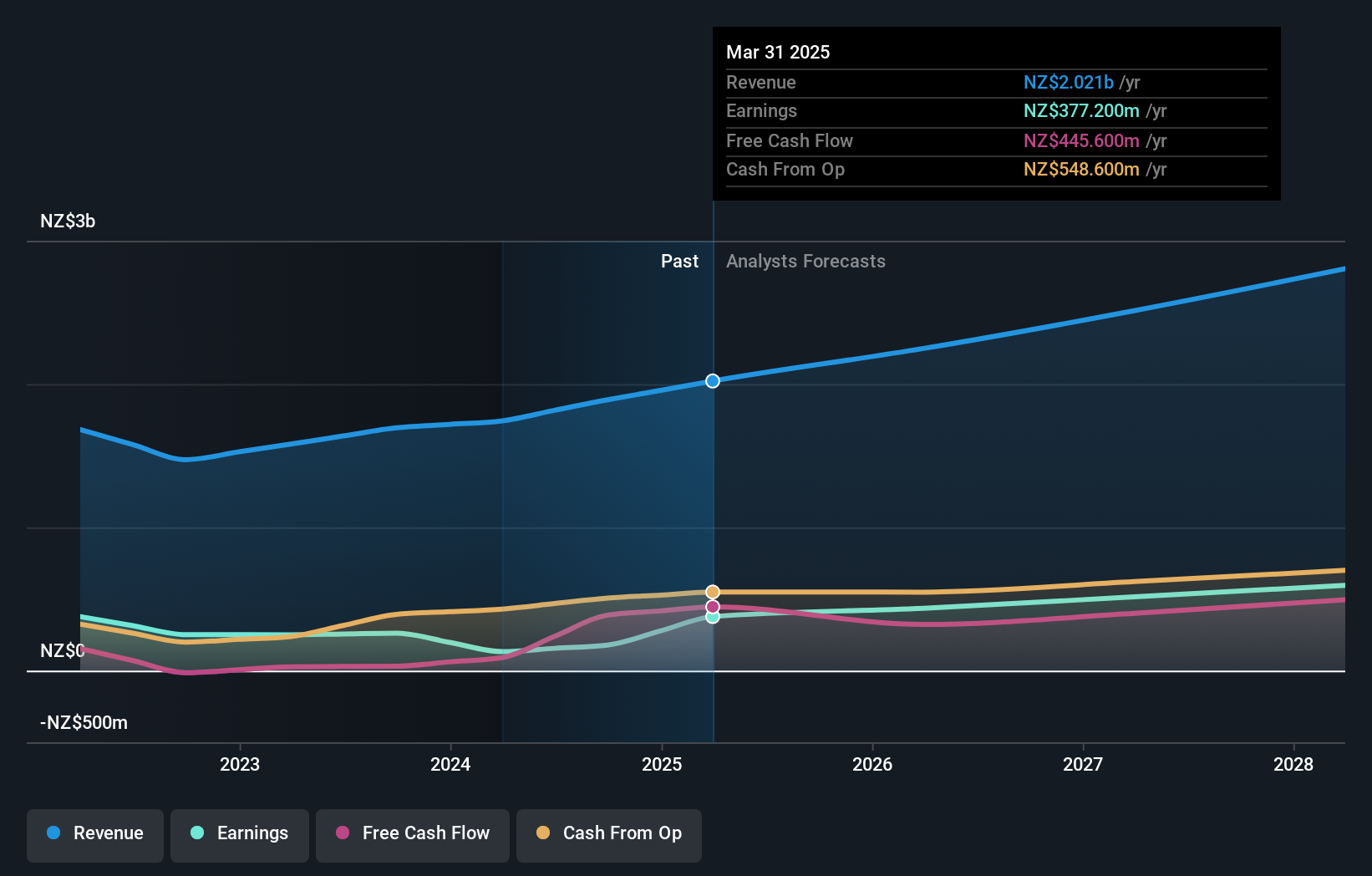- New Zealand
- /
- Medical Equipment
- /
- NZSE:FPH
Investors in Fisher & Paykel Healthcare (NZSE:FPH) have seen respectable returns of 98% over the past three years
By buying an index fund, investors can approximate the average market return. But if you buy good businesses at attractive prices, your portfolio returns could exceed the average market return. For example, Fisher & Paykel Healthcare Corporation Limited (NZSE:FPH) shareholders have seen the share price rise 88% over three years, well in excess of the market return (6.2%, not including dividends). On the other hand, the returns haven't been quite so good recently, with shareholders up just 2.7%, including dividends.
So let's assess the underlying fundamentals over the last 3 years and see if they've moved in lock-step with shareholder returns.
To paraphrase Benjamin Graham: Over the short term the market is a voting machine, but over the long term it's a weighing machine. By comparing earnings per share (EPS) and share price changes over time, we can get a feel for how investor attitudes to a company have morphed over time.
During the three years of share price growth, Fisher & Paykel Healthcare actually saw its earnings per share (EPS) drop 0.6% per year.
Given the share price resilience, we don't think the (declining) EPS numbers are a good measure of how the business is moving forward, right now. Therefore, it makes sense to look into other metrics.
Languishing at just 1.2%, we doubt the dividend is doing much to prop up the share price. It may well be that Fisher & Paykel Healthcare revenue growth rate of 8.8% over three years has convinced shareholders to believe in a brighter future. If the company is being managed for the long term good, today's shareholders might be right to hold on.
You can see how earnings and revenue have changed over time in the image below (click on the chart to see the exact values).

Fisher & Paykel Healthcare is well known by investors, and plenty of clever analysts have tried to predict the future profit levels. If you are thinking of buying or selling Fisher & Paykel Healthcare stock, you should check out this free report showing analyst consensus estimates for future profits.
What About Dividends?
As well as measuring the share price return, investors should also consider the total shareholder return (TSR). The TSR incorporates the value of any spin-offs or discounted capital raisings, along with any dividends, based on the assumption that the dividends are reinvested. It's fair to say that the TSR gives a more complete picture for stocks that pay a dividend. As it happens, Fisher & Paykel Healthcare's TSR for the last 3 years was 98%, which exceeds the share price return mentioned earlier. This is largely a result of its dividend payments!
A Different Perspective
Fisher & Paykel Healthcare shareholders are up 2.7% for the year (even including dividends). But that return falls short of the market. On the bright side, that's still a gain, and it's actually better than the average return of 1.5% over half a decade It is possible that returns will improve along with the business fundamentals. Most investors take the time to check the data on insider transactions. You can click here to see if insiders have been buying or selling.
If you would prefer to check out another company -- one with potentially superior financials -- then do not miss this free list of companies that have proven they can grow earnings.
Please note, the market returns quoted in this article reflect the market weighted average returns of stocks that currently trade on New Zealander exchanges.
New: AI Stock Screener & Alerts
Our new AI Stock Screener scans the market every day to uncover opportunities.
• Dividend Powerhouses (3%+ Yield)
• Undervalued Small Caps with Insider Buying
• High growth Tech and AI Companies
Or build your own from over 50 metrics.
Have feedback on this article? Concerned about the content? Get in touch with us directly. Alternatively, email editorial-team (at) simplywallst.com.
This article by Simply Wall St is general in nature. We provide commentary based on historical data and analyst forecasts only using an unbiased methodology and our articles are not intended to be financial advice. It does not constitute a recommendation to buy or sell any stock, and does not take account of your objectives, or your financial situation. We aim to bring you long-term focused analysis driven by fundamental data. Note that our analysis may not factor in the latest price-sensitive company announcements or qualitative material. Simply Wall St has no position in any stocks mentioned.
About NZSE:FPH
Fisher & Paykel Healthcare
Designs, manufactures, markets, and sells medical device products and systems in North America, Europe, the Asia Pacific, and internationally.
Flawless balance sheet with proven track record.
Similar Companies
Market Insights
Community Narratives



